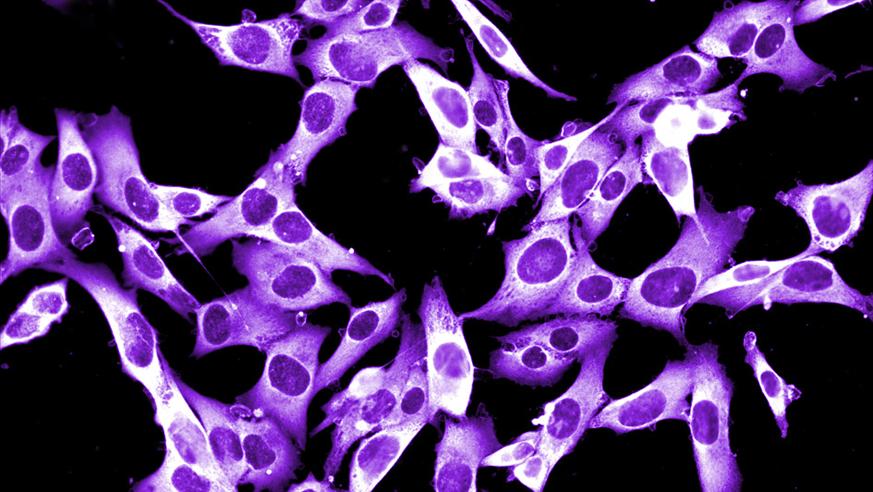
Testing for a panel of metabolites in the blood can pick out which patients are likely to respond to a drug for skin cancer, new research reports.
The study could help detect early whether treatment is working for patients with malignant melanoma – the most dangerous form of skin cancer – and allow them to be switched to alternative therapies if necessary.
Researchers found that the levels of seven metabolites found in blood could distinguish between patients with melanoma who were likely to respond to a type of drug called a MEK inhibitor and those whose disease progressed.
A team led by scientists at The Institute of Cancer Research, London, examined blood samples from 35 patients with advanced melanoma who had been treated with a MEK inhibitor called RO4987655.
The study was funded by Cancer Research UK and is published in the journal Molecular Cancer Therapeutics.
New way of quickly assessing response to treatment
RO4987655 works by disrupting a signalling system called that MAPK/ERK pathway which is over-active in around one in five cancers, and almost two-thirds of melanomas.
This pathway can be turned ‘on’ or ‘off’ to tell cells when to grow.
However, many of the molecules that make up this network can be mutated to become stuck in the ‘on’ position, which can lead to cancer.
Of 182 metabolites examined, seven of them proved to be significantly different between patients whose disease had progressed and those who responded to the treatment.
The study not only provides a new way of rapidly assessing whether patients will respond to treatment, but also offers valuable clues to why the treatment works in some patients and not others.
Around 15,400 people are diagnosed with melanoma every year in the UK – and the disease is very difficult to treat once it has spread.
Dr Florence Raynaud is part of the Clinical Pharmacology and Trials Team which conducts early investigations of new anticancer agents developed in the Cancer Research UK Cancer Therapeutics Centre.
Read more
Finding better melanoma skin cancer treatments
Study leader Dr Florence Raynaud, Senior Staff Scientist at The Institute of Cancer Research, London, said:
“While it’s a tribute to cancer research that so many new treatments have been developed for malignant melanoma, it remains a challenge to work out which treatments to give to which particular patients.
“This study provides evidence that we can pick out early on if a drug such as RO4987655 is likely to work well for a patient with melanoma, giving us the best possible chance of extending lives.”
Fellow study author Professor Paul Workman, Chief Executive of the ICR, said:
“Since the 1990s the incidence of melanoma skin cancer in the UK has more than doubled, so it’s essential that we find better treatments for this disease. This study gives us an important tool for determining which patients are likely to respond well to MEK inhibitors, and it also provides clues as to why these drugs work.
“The fact that levels of certain metabolites fall in the blood of patients who are responding to treatment could offer clues to getting around cancer’s defences.”